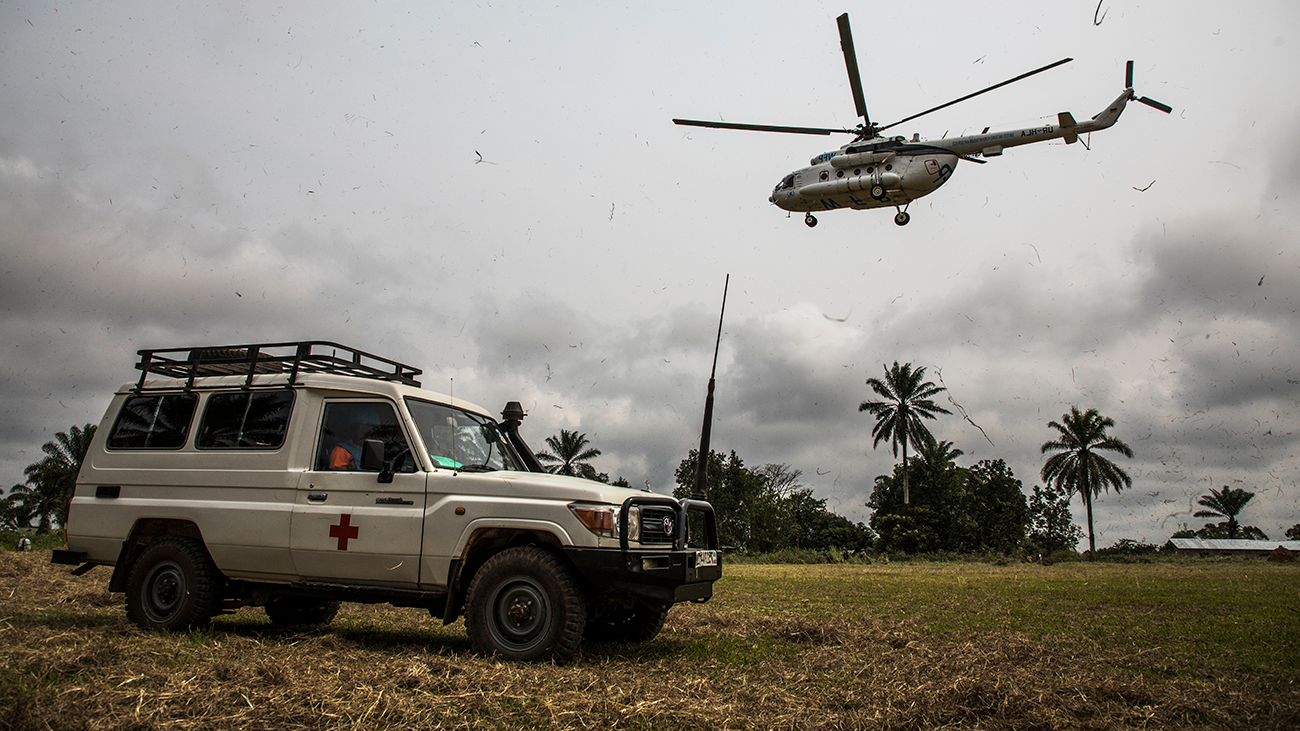
A helicopter from MONUSCO leaves Oica, North Kivu province, in the Democratic Republic of the Congo. January 15, 2019. (World Bank/Vincent Tremeau)
Recent health emergencies such as the 2018–2020 Ebola crisis in DRC, in conjunction with the early stages of the COVID-19 pandemic, demonstrate the importance of health responses that take the local context into account, especially in settings that are already affected by violent conflict. When humanitarian health responses fail to understand and adapt to their impact on conflict dynamics, they risk exacerbating those dynamics, impeding the health response, and placing health workers at risk. As healthcare becomes increasingly and globally politicized, it is more crucial than ever to recognize the links between health and peace and promote a more deliberate approach to delivering emergency health responses in violent conflict environments.
In this context, this paper first discusses the global normative environment for emergency health responses in situations of violent conflict and proposals to strengthen the links between international health and peace activities, especially the GHPI. Second, it examines the concepts at the core of the GHPI initiative and considers their operationalization in violent conflict environments. Third, it summarizes the emergency health response to the 2018–2020 Ebola epidemic in eastern DRC, how it interacted disastrously with conflict dynamics, and the lessons learned from the experience. Finally, it highlights several risk areas that emergency health interventions working at the humanitarian-peace nexus in conflict will likely face and considers options for mitigating their impact.
The paper concludes by offering the following recommendations, aimed at supporting the further development of the conceptual framework for the health and peace agenda and informing the operationalization of the GHPI and similar initiatives.
- WHO should develop the GHPI conceptual framework further, including by elaborating on when health actors should pursue peace-responsive programming and how they should coordinate with peace and security actors, as well as the relationship between the GHPI and political processes.
- WHO should design a strategy to operationalize the GHPI in violent conflict settings, including by developing tools, guidance, and training on conflict-sensitive analysis and programming; identifying the political skills required of those leading the implementation of such programming; and clarifying how to manage ethical dilemmas.
- The Executive Office of the Secretary-General should conduct a formal assessment of the Ebola emergency coordinator position during the 2018–2020 Ebola crisis.
- The UN Department for Safety and Security should review security risk assessment processes and safety and security measures and develop an inventory of safety and security measures that could be used in place of armed security.
- The UN Department of Peace Operations should review operational guidance for armed escorts and area security during site visits.
